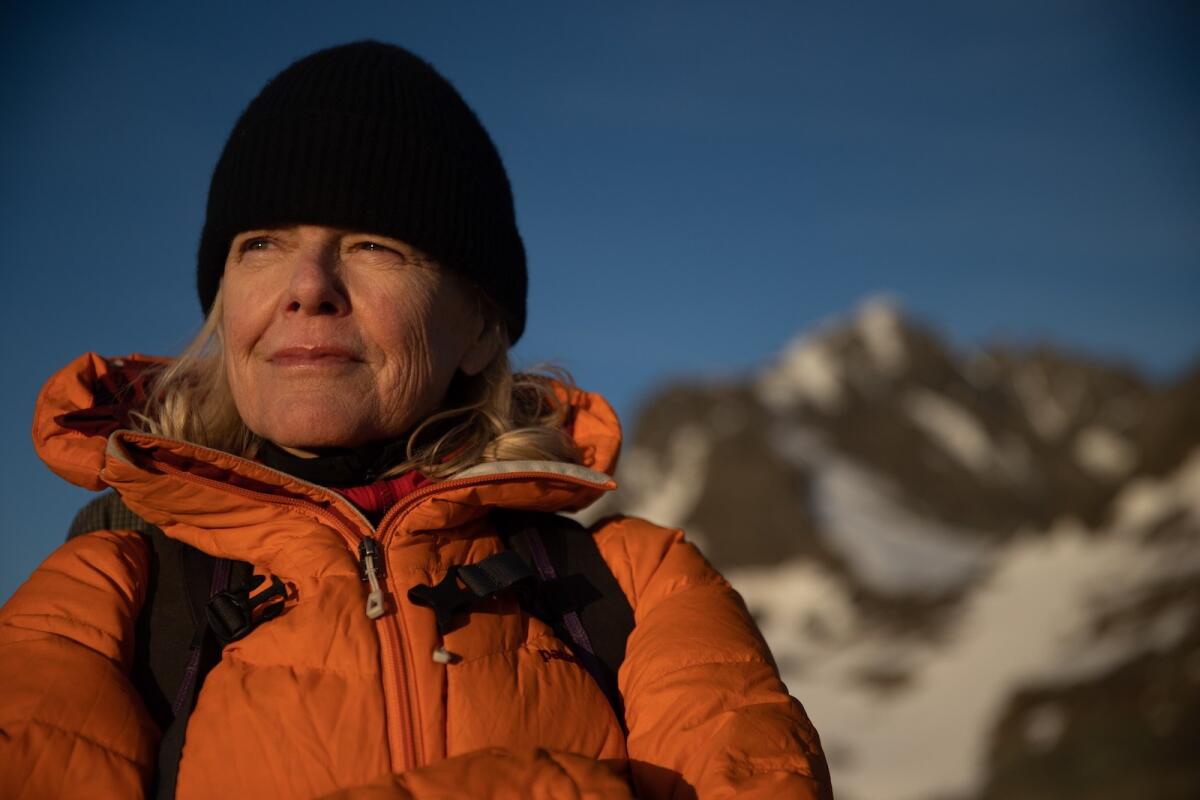‘Wild Life,’ a visually stirring portrait of land preservation and self-preservation

- Share via
It may not achieve the white-knuckle visceral kicks found in their Oscar-winning 2018 documentary “Free Solo,” but co-directors Elizabeth Chai Vasarhelyi and Jimmy Chin deliver another rewardingly triumphant, visually stirring portrait of overcoming adversity with their latest effort, “Wild Life.”
Honoring the legacy of entrepreneur-turned-environmental philanthropist Douglas Tompkins and his equally tenacious wife, Kris, who would ensure the lofty goals she shared with her late husband would be attained despite considerable odds, the film is at once gently intimate and breathtakingly expansive in scope.
There are midlife crises and then there are the seismic shifts in direction taken by Tompkins, a successful American businessman who in 1964 channeled his love of the outdoors into the North Face lifestyle brand and two years later co-founded (with his first wife, Susie) the influential fashion company Esprit.
But by the late ‘80s, the former bon vivant became disenchanted with consumerism and relocated to Chile, where he had gone rock climbing as a youth. He’d also meet his future wife, Kristine McDivitt, who had been instrumental in helping Tompkins’ longtime friend Yvon Chouinard build Patagonia into a leader in the outdoor apparel industry.
The Tompkinses, who married in 1993, shared an ambitious vision of giving back to the planet through buying acres of wilderness piecemeal and creating protected national parks under their nonprofit land trust with the intention of donating them back to the Chilean government.
Despite their noble intentions, the bold conservation project was pitched at a time when environmentalists were essentially regarded as eco-terrorists, especially in an extractive economy-based (mining) country with no real history of land philanthropy.
As a result, the couple found themselves eyed with distrust by the government and local media, and were the subjects of increasingly bizarre xenophobic conspiracy theories, resulting in tapped phones and death threats.
Undeterred, the Tompkinses would keep pushing their unorthodox mission, which also involved rewilding lands with species that had been on the brink of extinction, until Doug’s death from hypothermia in a 2015 kayaking accident, leaving grief-stricken Kris experiencing not just loss, but “an amputation.”
“You can live off this story … tell everybody about this life you had,” she says of her options at the time. “Or you can go to work and don’t stop.”
Her ultimate choice is movingly laid out by directors Vasarhelyi and Chin, himself an avid climber and skier who had first met the Tompkinses in 2010 and is invited to join Kris and mutual friend Rick Ridgeway on a climbing trip up Cerro Kristina, the southern Andes mountain that Doug had named in his wife’s honor.
With 400 hours of footage shot over the course of six years, along with another several hundred hours’ worth of archival footage at their disposal, the filmmakers have assembled a deftly edited, gorgeously shot testament to devotion in all its inherent meanings.
Neither simply motivational ecological documentary nor moving love story, “Wild Life” is committed in equal measure to the formidable challenges of land preservation and self-preservation.
'Wild Life'
Rated: PG-13, for brief strong language
Running time: 1 hour, 33 minutes
Playing: Starts April 21 at Laemmle Monica Film Center, Santa Monica; Landmark Pasadena Playhouse; and AMC Burbank
More to Read
Only good movies
Get the Indie Focus newsletter, Mark Olsen's weekly guide to the world of cinema.
You may occasionally receive promotional content from the Los Angeles Times.








